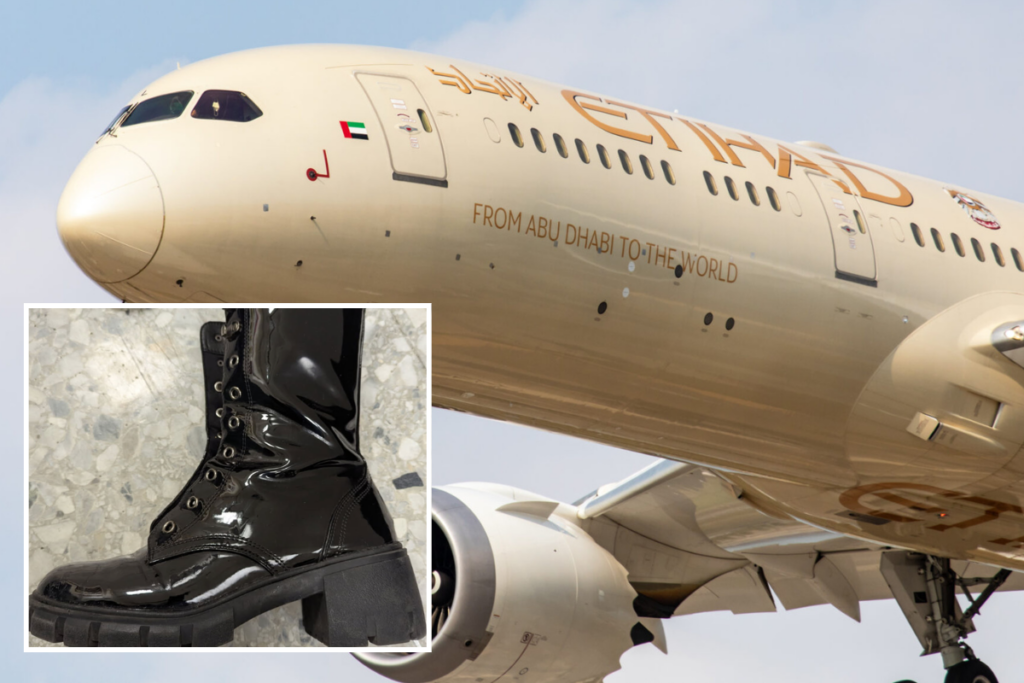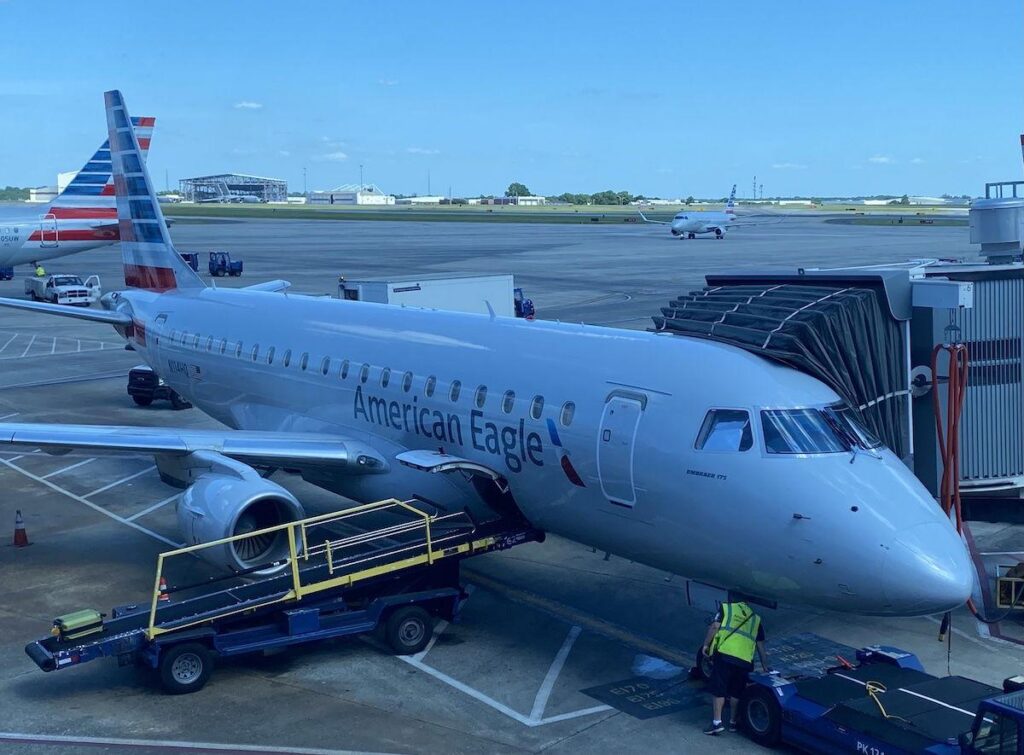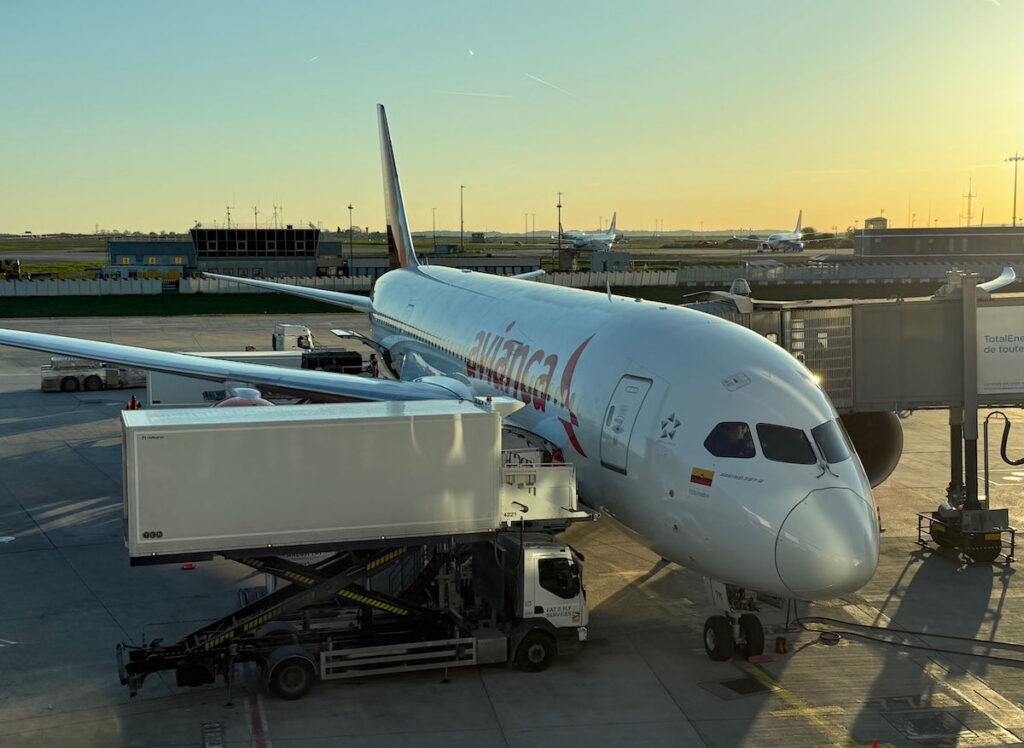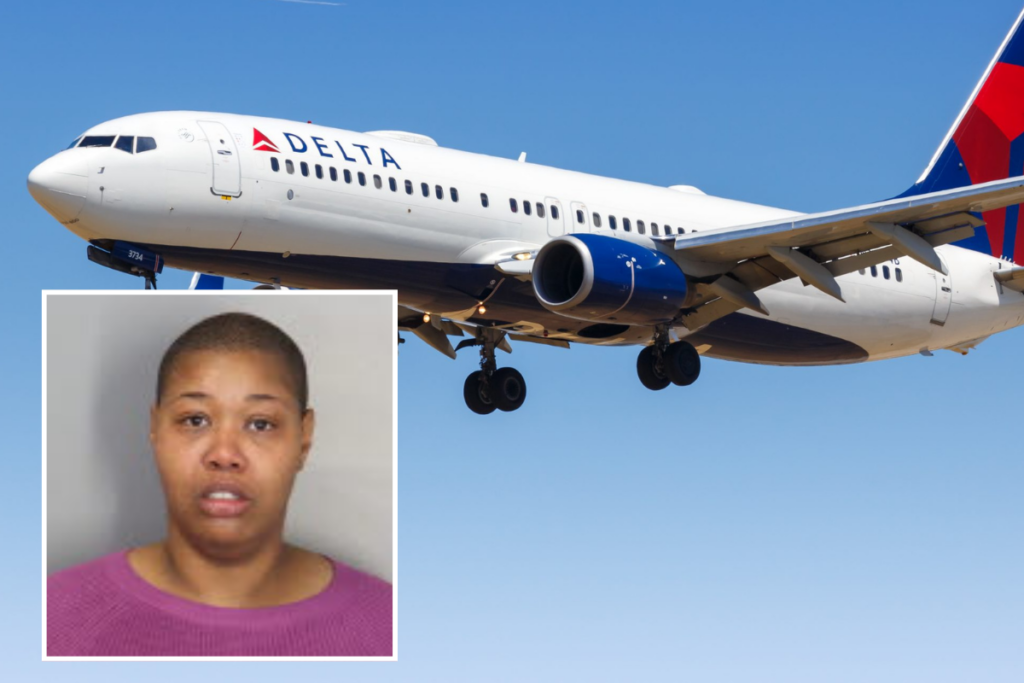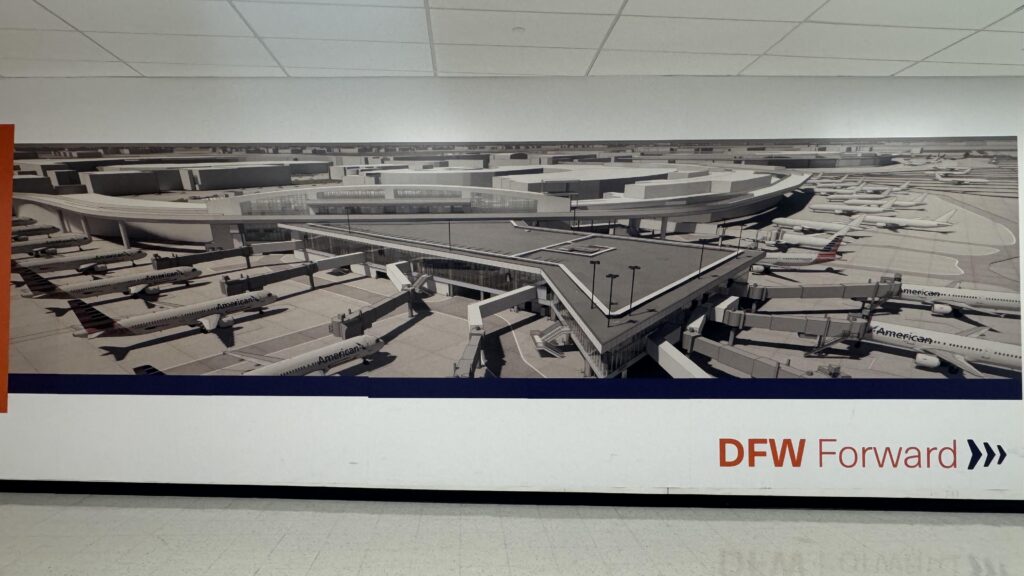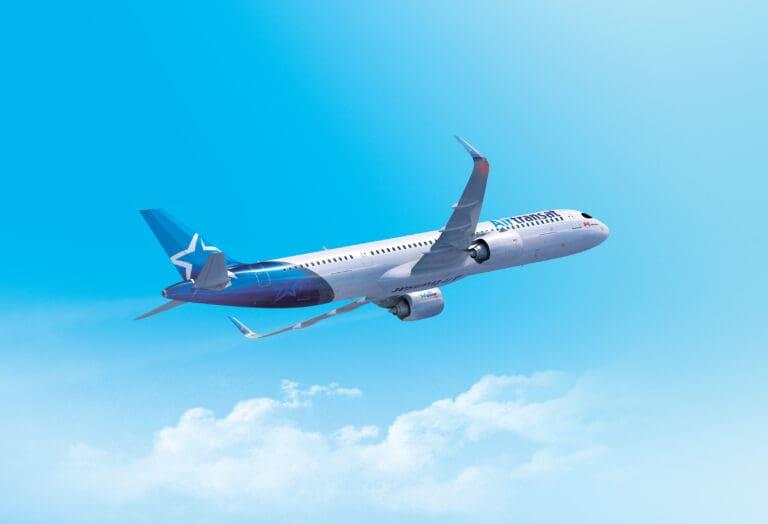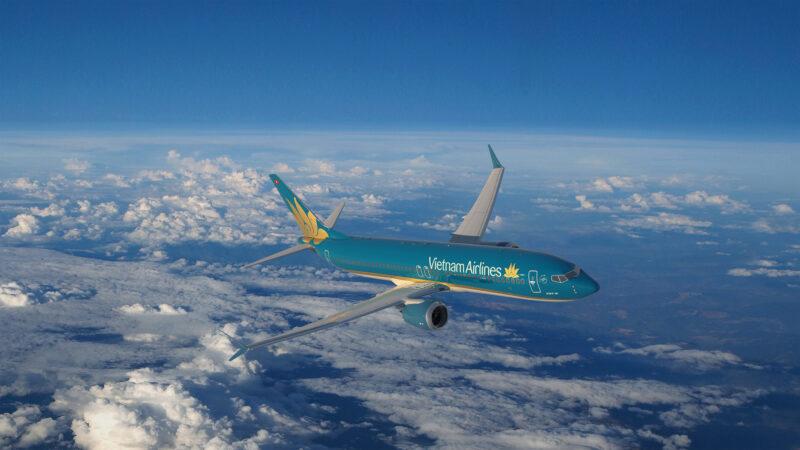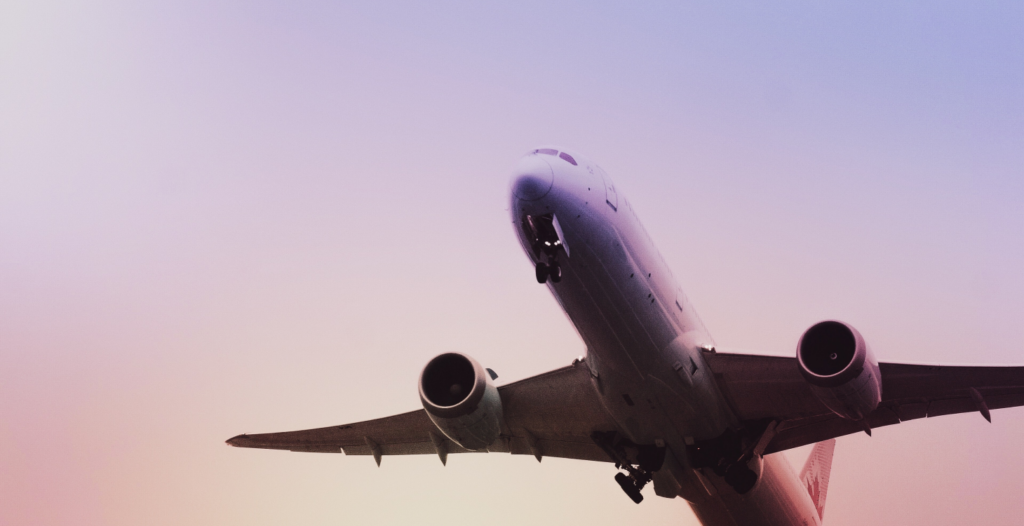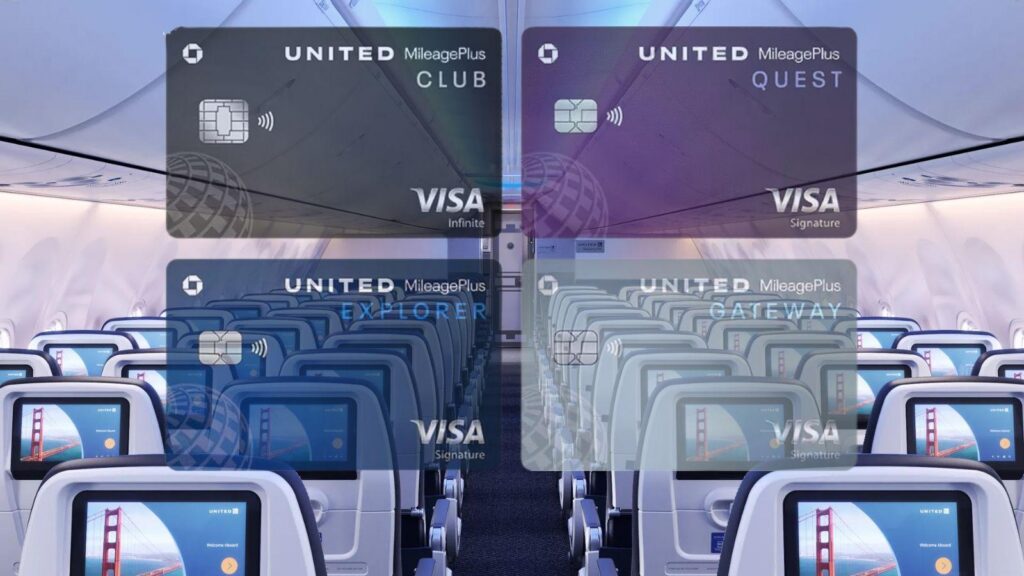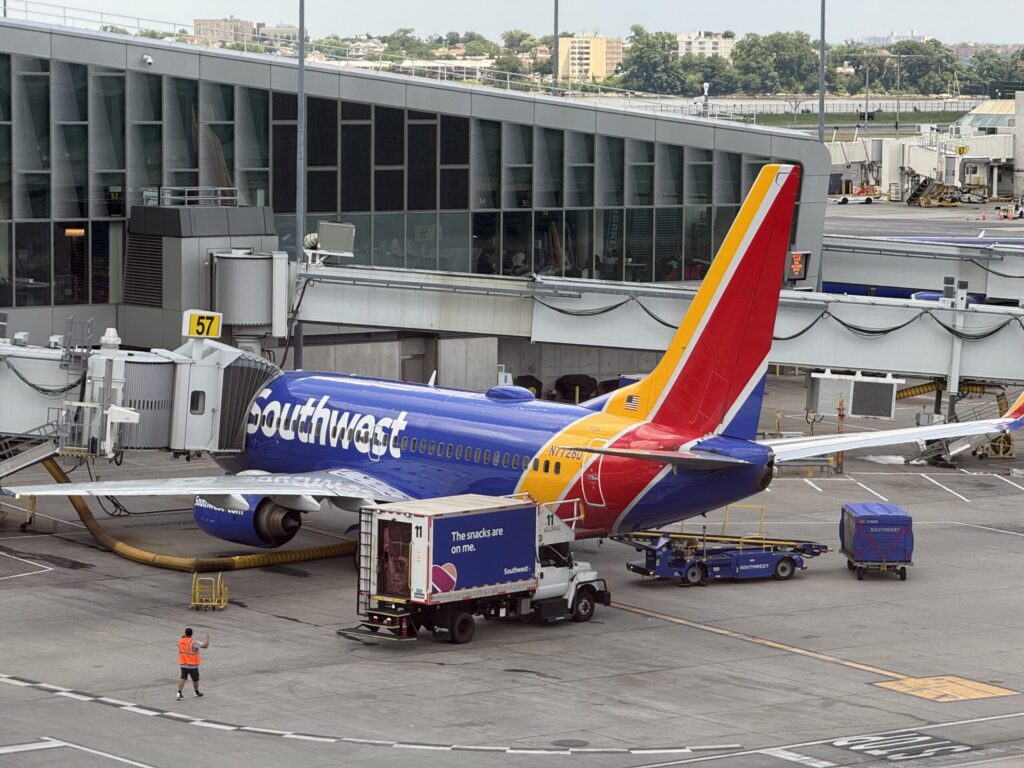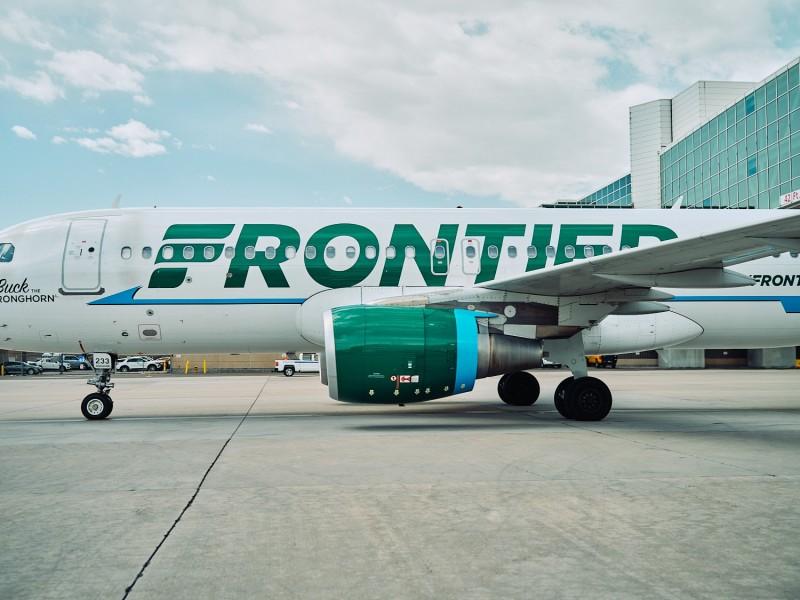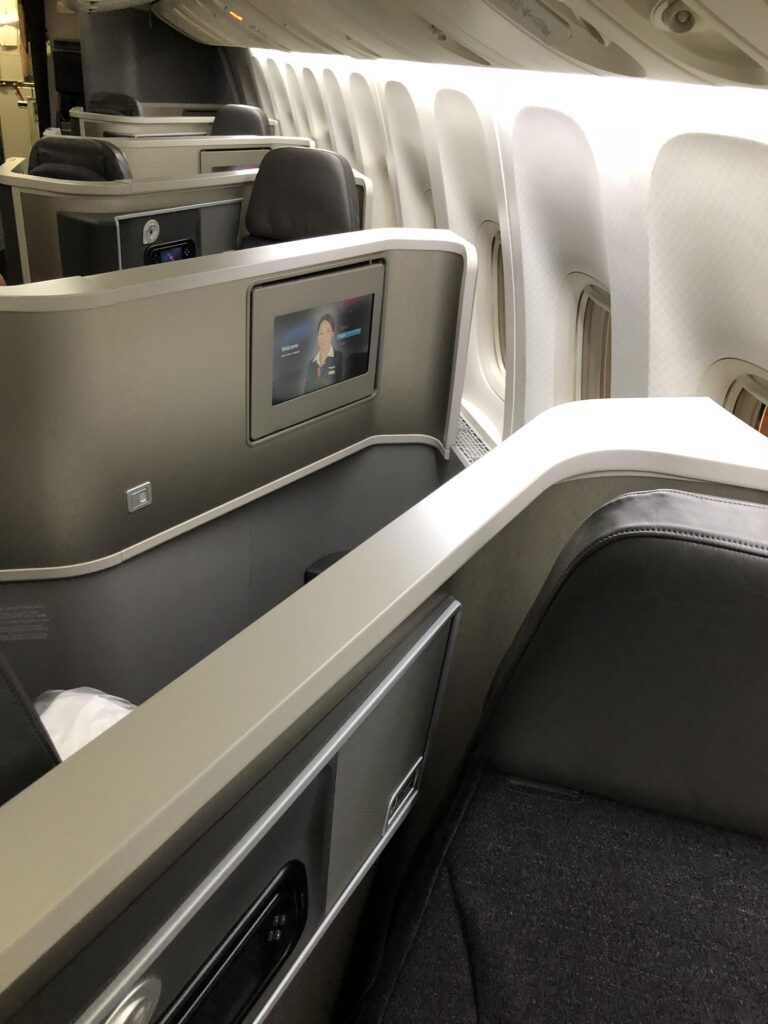Christmas is more than just a date on the calendar; it’s a season filled with warmth, joy, and cherished traditions that span generations. Yet, amid the glow of festive lights and the scent of fresh pine, many find themselves facing the challenge of holiday travel. Navigating the skies on Christmas Eve, in particular, can be a daunting task if you’re unprepared.
Flight delays, overcrowded airports, and heightened security measures are just a few hurdles that can turn a joyous occasion into a stressful ordeal. With the holiday season being one of the busiest travel periods on record, it’s essential to arm yourself with knowledge and strategies that can ease your journey.
Whether you’re a seasoned traveler or taking to the skies for the first time in years, this comprehensive guide will provide you with actionable tips and insights to make your Christmas Eve flight as smooth and stress-free as possible. After all, the journey should be just as enjoyable as the destination.
Book Your Flight Early to Secure the Best Deals
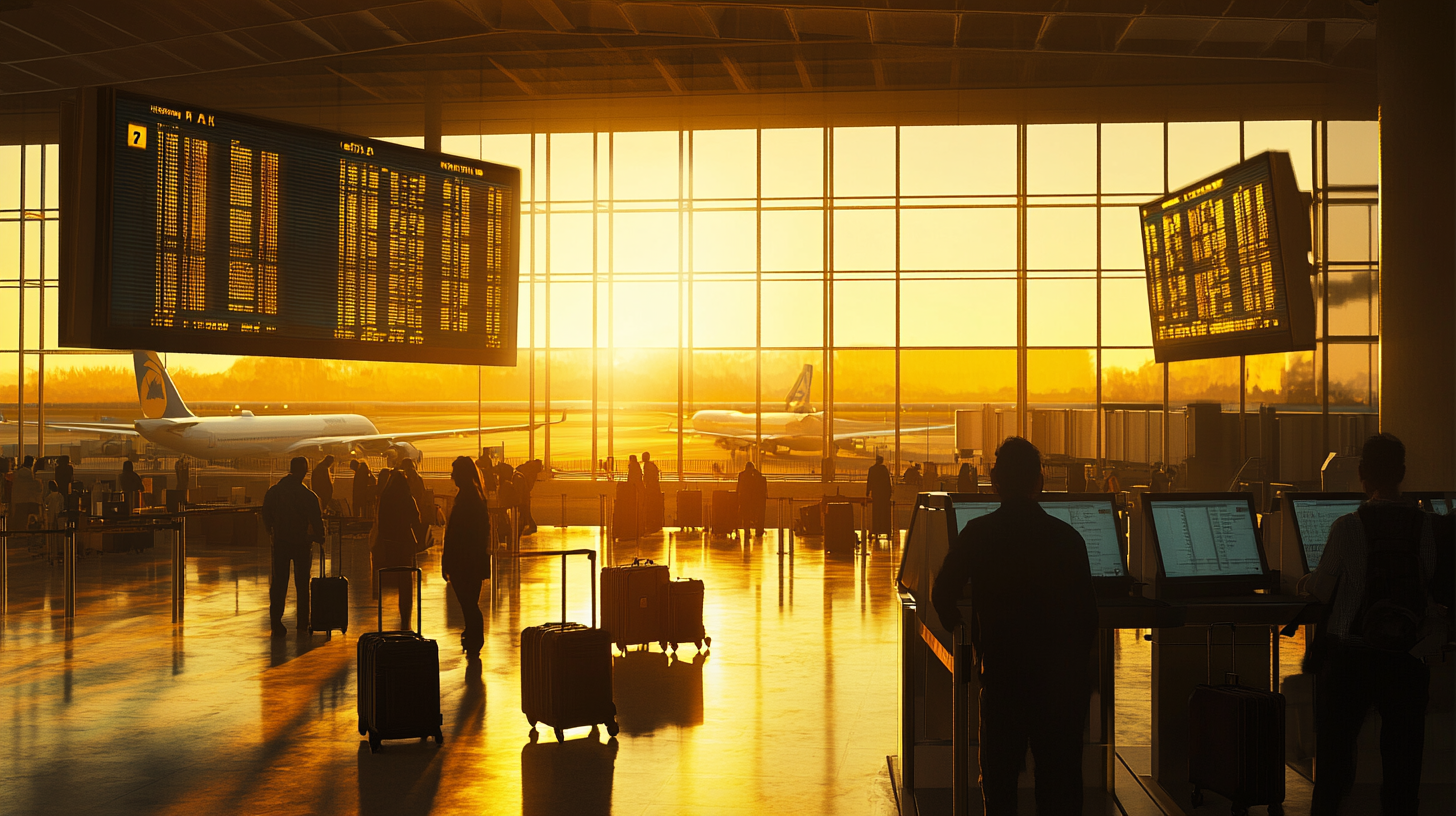
One of the most critical steps in preparing for holiday travel is booking your flight early. With high demand leading to skyrocketing prices, securing your tickets ahead of time can save you both money and stress. Studies have shown that the optimal time to book Christmas flights is in late October, around 60 days before departure. This period often offers a sweet spot between price and seat availability.
According to data from Best Time to Book Holiday Flights, booking during this window can lead to significant savings, sometimes as much as 15% off peak prices. The Federal Aviation Administration (FAA) and the Transportation Security Administration (TSA) support this strategy, recommending travelers to plan and purchase flights well in advance to avoid the holiday rush and inflated prices.
By booking early, you not only secure your preferred flight times but also gain peace of mind knowing that one major element of your holiday planning is settled. Waiting until after Thanksgiving to book your flight is a gamble that often doesn’t pay off. As the holiday approaches, airlines capitalize on the surge in demand by increasing prices, leaving last-minute travelers with fewer options and higher costs.
By planning ahead, you open the door to a multitude of benefits, including early-bird specials and promotional offers that can substantially reduce your travel expenses. Airlines frequently release limited-time deals and promo codes, such as XMAS-PRM20, which offers 20% off on select routes. Keeping an eye on Airline Promotional Offers for Christmas Travel can help you stay informed about these opportunities.
Additionally, subscribing to airline newsletters and following their social media accounts can give you early access to sales and exclusive discounts. For the savvy traveler, these savings can make a significant difference in the overall cost of your holiday trip.
Flexibility with your travel dates is another powerful tool in reducing travel expenses. Flying on non-peak days, such as Christmas Eve or even Christmas Day itself, can result in significant savings. Data from Cheapest Days to Fly During Christmas Season indicates that these days are typically less crowded, leading to lower ticket prices and a more relaxed travel environment.
Additionally, mid-week flights, such as those on Tuesdays and Wednesdays, often have reduced fares compared to weekend departures. By adjusting your schedule to accommodate these less popular travel days, you can not only save money but also enjoy shorter lines and a more pleasant airport experience. It’s a win-win situation that savvy travelers have been utilizing for years.
Don’t forget to leverage the power of travel rewards credit cards to maximize your benefits. These cards offer points, miles, or cashback on your purchases, which can accumulate quickly, especially if you use them for your holiday shopping and other significant expenses throughout the year. By the time Christmas rolls around, you may have earned enough rewards to offset a substantial portion of your flight costs.
Some cards even offer sign-up bonuses that can be equivalent to a free domestic flight after meeting a minimum spending requirement. Exploring options from Best Travel Rewards Credit Cards for Holiday Travel can help you find a card that aligns with your spending habits and travel goals. Remember, the key is to use these cards responsibly, paying off your balance each month to avoid interest charges. This strategy makes early booking even more advantageous, as you can capitalize on both lower fares and accumulated rewards.
Choose the Best Travel Dates to Avoid Crowds

The days leading up to Christmas are notorious for heavy airport traffic, and understanding these patterns can help you plan accordingly. According to the American Automobile Association (AAA), an estimated 7.5 million Americans are expected to fly between December 23 and January 1, surpassing pre-pandemic levels and setting new records. The busiest travel days are typically December 21-23 and December 26-30, when airports are teeming with travelers eager to reach their destinations or return home.
Data from Holiday Travel Statistics and Trends suggests that these peak days can see airport traffic increase by up to 200% compared to average days. This surge not only affects flight availability and prices but also contributes to longer lines at check-in counters, security checkpoints, and boarding gates. By being aware of these trends, you can make more informed decisions about your travel plans.
To avoid the crush of holiday crowds, consider flying on Christmas Eve or even Christmas Day. These days are statistically the least crowded during the holiday season, offering a more relaxed and enjoyable airport experience. The Transportation Security Administration (TSA) anticipates over 2.5 million passengers on peak days during the holiday season, but numbers drop significantly on December 24-25 and December 31-January 1.
As detailed in the Advantages of Flying on Christmas Day, flying on these dates not only reduces stress associated with long lines and crowded terminals but can also result in lower airfare. Airlines often have unsold seats on these days and may offer last-minute deals to fill them. Additionally, staff at airports and airlines may be in the holiday spirit, which can translate to a friendlier and more accommodating atmosphere.
If your schedule allows, departing earlier and returning later can also help you dodge the busiest times and make your travel experience more pleasant. Flying before December 20 or after January 1 not only reduces congestion but can also lead to better flight deals due to decreased demand. According to Strategies to Avoid Holiday Travel Crowds, shifting your travel dates by just a few days can have a significant impact on both cost and convenience.
Being strategic with your travel dates is a key component in understanding how to prepare for Christmas Eve flights. It’s all about balancing your holiday commitments with the benefits of traveling during off-peak times. Early planning and flexibility can result in a more relaxed journey and potentially significant savings.
Keep in mind that the busiest airports, such as Atlanta’s Hartsfield-Jackson (ATL), New York’s John F. Kennedy International Airport (JFK), Denver International (DEN), and others, will be even more hectic during peak days. Navigating through these bustling hubs can add unnecessary stress and time to your journey. If possible, consider using alternative or smaller airports to streamline your travel.
For example, instead of flying into Chicago’s O’Hare International Airport (ORD), you might opt for Chicago Midway International Airport (MDW), which is less crowded but still offers a variety of flight options. List of Quieter Alternative Airports for Holiday Travel provides a comprehensive guide to airports that experience lower traffic volumes during the holidays. While this might require additional planning, such as arranging ground transportation from a less central location, it can significantly enhance your travel experience by reducing wait times and increasing the likelihood of on-time departures and arrivals.
Navigate Busy Airports with Ease
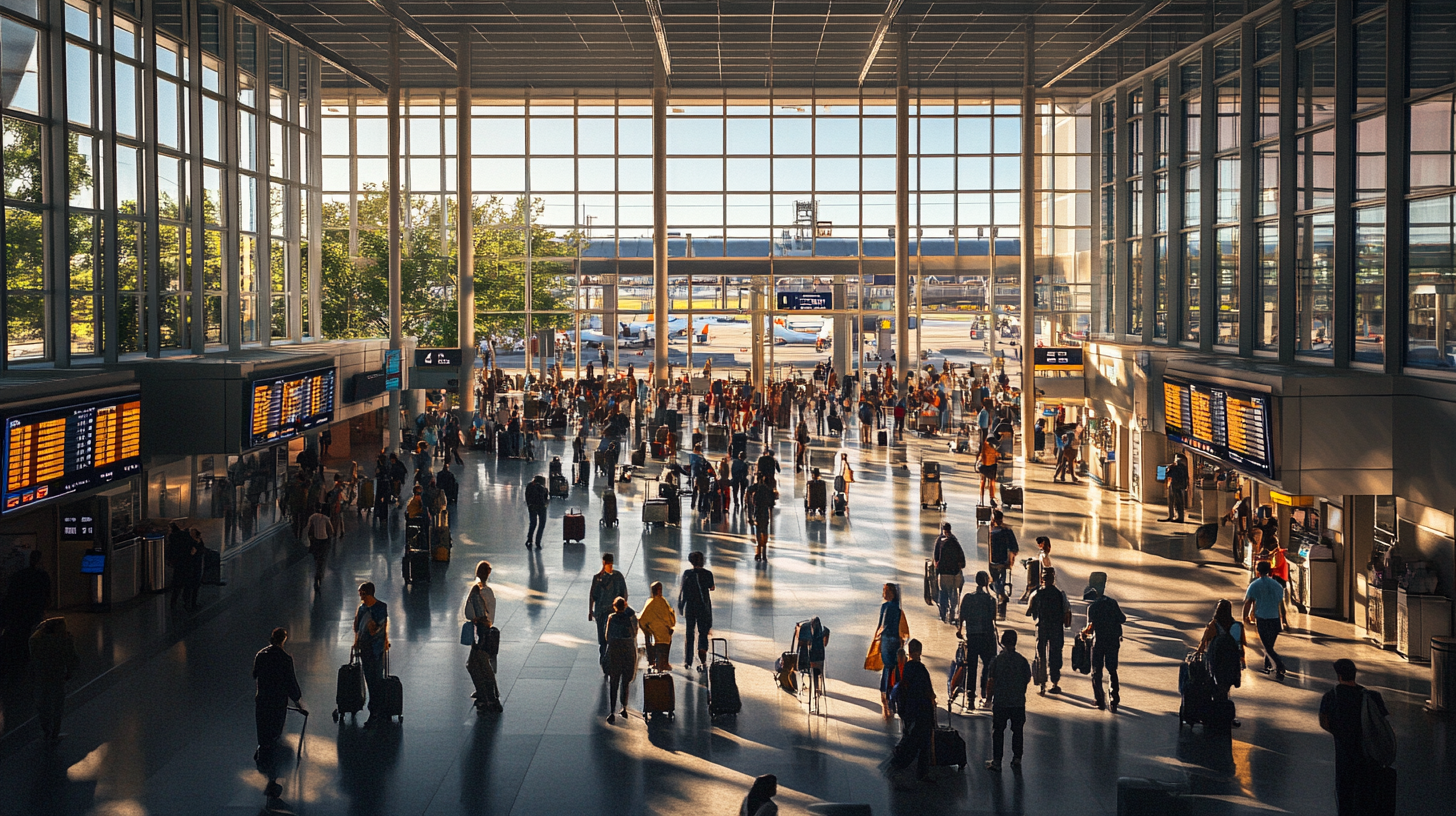
Understanding how to navigate busy airports is crucial when flying on Christmas Eve. High passenger volumes can lead to longer lines, crowded terminals, and increased stress levels. To mitigate these challenges, it’s advisable to arrive at the airport early—at least two hours before domestic flights and three hours before international departures. Some seasoned travelers recommend adding even more buffer time during holiday periods.
According to Tips for Quick Airport Navigation During Holidays, pre-planning your route through the airport, familiarizing yourself with the terminal layout, and knowing the location of amenities like lounges, restrooms, and dining options can greatly reduce stress. Additionally, understanding peak traffic times specific to your departure airport can help you avoid the worst of the crowds.
Allow extra time to reach the airport, especially if you’re driving or relying on ground transportation services. The roads leading to major airports can be heavily congested due to local traffic, holiday shoppers, and an influx of fellow travelers. Utilizing navigation apps that provide real-time traffic updates can help you plan your route and departure time more effectively. Options like Waze, Google Maps, and other Best Traffic Apps for Holiday Travel offer features such as alternate routes, traffic alerts, and estimated time of arrival adjustments based on current conditions. Additionally, consider factors like weather conditions, construction projects, or local events that could impact your journey to the airport. Being proactive in your travel planning can save you from last-minute panic and ensure you arrive with ample time to spare.
Utilizing airline apps can significantly streamline your airport experience, saving you both time and stress. These apps allow you to check in online, access your digital boarding pass, receive real-time flight updates, and even select or change your seats in advance. By handling these details before arriving at the airport, you can bypass some of the lines at check-in counters and kiosk machines.
According to Benefits of Using Airline Mobile Apps, additional features may include baggage tracking, airport maps, and even the ability to rebook flights in case of delays or cancellations. Some apps also offer in-flight entertainment options accessible from your personal device. Embracing this technology ensures you have all pertinent information at your fingertips and can adapt quickly to any changes that may occur during your travel day.
Consider booking security screenings in advance where available. Some airports now offer reservation systems for security checks, allowing travelers to book a time slot that suits their schedule. This service, often referred to as “FastTrack” or “Reserve Security Lane,” can significantly cut down on waiting times and make your journey through the airport smoother.
Detailed guidance on How to Use Airport Security Reservation Systems can help you navigate this process. Typically, you can reserve a time slot online through the airport’s official website, usually free of charge or for a nominal fee. Upon arrival at the airport, you proceed to a designated security lane at your reserved time, thus bypassing the often lengthy standard security queues. This option is especially beneficial during peak travel times, such as during the holiday season, when security lines can be particularly long.
Prepare for Airport Security Checks
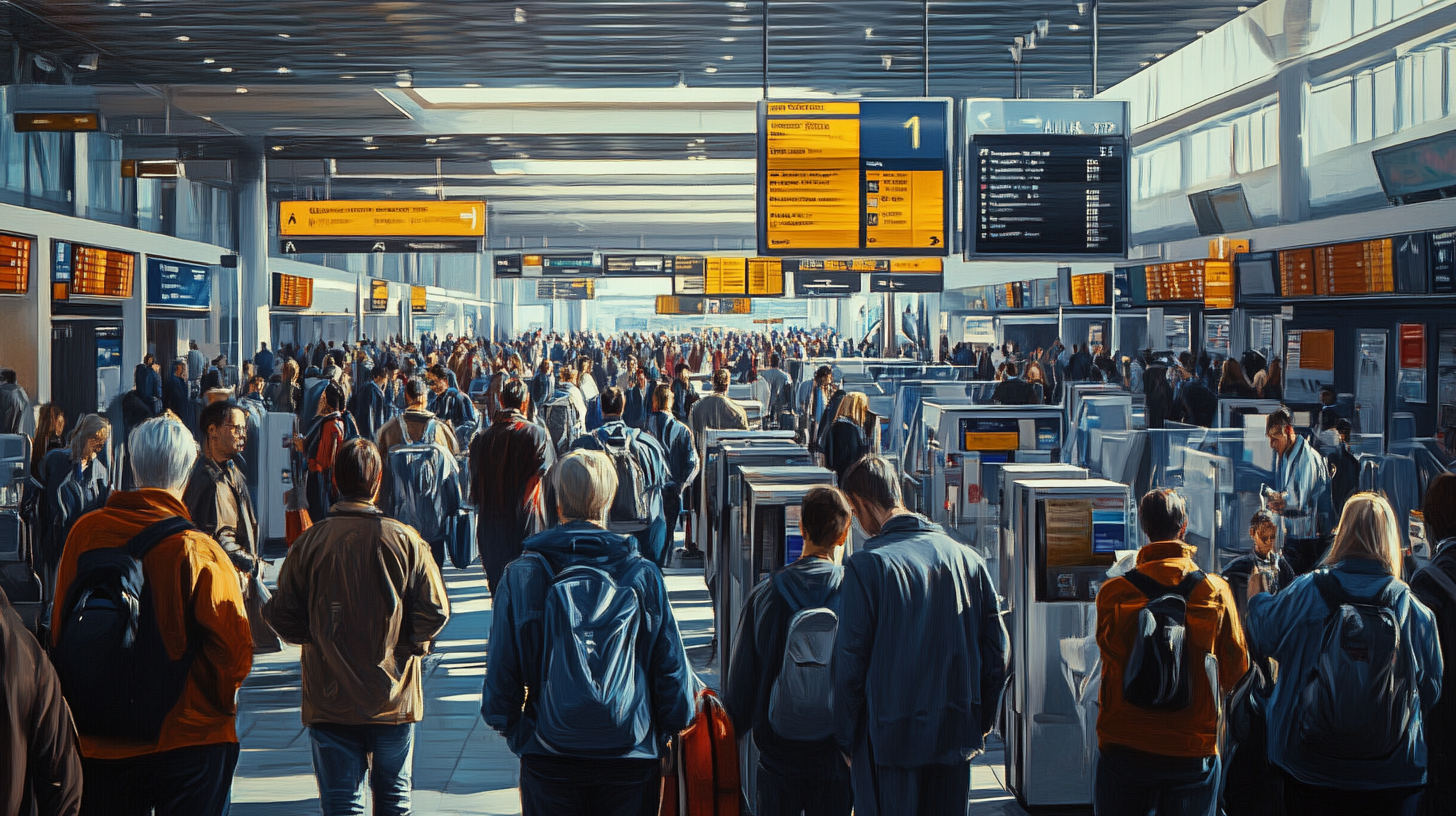
Airport security is an essential aspect of holiday travel, and being prepared can save you valuable time and reduce stress. The TSA expects record-breaking numbers this season, so knowing the rules and packing accordingly is crucial. One of their top recommendations is to pack from an empty suitcase. This practice ensures you don’t accidentally bring prohibited items that could delay you at security checkpoints.
According to the TSA Guidelines for Holiday Travelers, common items that cause delays include oversized liquids, gifts that resemble weapons, and certain foods. By familiarizing yourself with the list of prohibited items and the 3-1-1 liquids rule, you can pack your bags confidently and efficiently. Additionally, consider organizing your carry-on in a way that makes it easy to remove electronics and liquids for screening, unless you are using lanes equipped with advanced imaging technology that allows you to keep these items in your bag.
Signing up for TSA PreCheck is another effective way to expedite your security process. This program allows approved travelers to use dedicated security lanes, often significantly shorter than standard lines. Benefits include not having to remove shoes, belts, or light jackets, and keeping laptops and compliant liquids in your bag. With TSA PreCheck now expanded to include 200 airports and 80 airlines, it’s an excellent investment for frequent flyers. Enrollment involves a simple background check and in-person interview.
According to Benefits of TSA PreCheck and How to Enroll, the application fee is $85 for a five-year membership, which breaks down to just $17 per year. Some travel reward credit cards even offer reimbursement for this fee. By enrolling, you save valuable time and make your airport experience considerably more comfortable during the hectic holiday season and beyond.
Remember that wrapped gifts are subject to inspection by TSA officers. If an item alarms during the security screening process, even if it’s wrapped, the TSA will need to open it to determine what’s inside. To avoid having your carefully wrapped presents unwrapped by security personnel, it’s best to leave them unwrapped until you reach your destination. Alternatively, consider using gift bags or decorative boxes that are easy to open and reseal. Another option is to ship gifts ahead of time directly to your destination, which can also save space in your luggage.
Guidance from How to Travel with Gifts During the Holidays suggests using online retailers to send gifts directly to recipients, often with gift wrapping available. This approach not only simplifies your travel but also reduces the risk of gifts being lost or damaged in transit.
Be aware of the new Computed Tomography (CT) scanners being implemented at airports nationwide. These advanced scanners provide 3D images of the contents of your bags, allowing TSA officers to get a clearer view without the need to unpack items. Passengers using lanes equipped with CT scanners can leave electronics larger than a cell phone and approved liquids in their carry-on bags, speeding up the screening process.
Familiarize yourself with these technologies by checking Understanding CT Scanners and How They Affect Travelers. Being prepared for this technology means packing your bags in a way that doesn’t obstruct the scanner’s view, such as placing dense items like books or electronics in a way that allows for clear images. Understanding these advancements can contribute to a smoother and quicker experience at security checkpoints.
Pack Strategically to Avoid Delays and Fees

Packing efficiently is a key component of stress-free holiday travel. Start by weighing your luggage at home using a portable luggage scale to avoid unexpected fees at the airport. Airlines have strict weight limits for checked baggage, typically 50 pounds for most carriers, and exceeding them can result in hefty charges ranging from $50 to $200. Knowing your bag’s weight beforehand allows you to make adjustments if necessary, such as removing non-essential items or redistributing weight between bags.
Refer to Tips for Efficient Holiday Packing for strategies like rolling clothes to save space, using packing cubes for organization, and choosing multi-purpose clothing items. Remember that winter clothing tends to be bulkier, so wearing your heaviest items on the plane can save space in your luggage and keep you warm during your flight.
Consider packing only a carry-on bag for your trip. This approach eliminates the risk of lost or delayed luggage and allows you to bypass the baggage claim area upon arrival, saving valuable time. Traveling light with a carry-on also gives you more flexibility in case of flight changes or cancellations. With the TSA’s recommendation to “pack smart” using carry-ons, you can streamline your journey and reduce potential hassles during your trip.
For more insights, see Advantages of Traveling with Carry-On Only, which outlines tips like adhering to TSA’s size and liquids regulations, choosing the right carry-on bag, and maximizing space through efficient packing techniques. Remember that some airlines have strict policies on the size and weight of carry-on luggage, so verify these details before you pack.
Bringing an extra carry-on for gifts might seem like a good idea, but it’s important to be cautious of airline policies regarding carry-on allowances. Most airlines allow one carry-on bag and one personal item per passenger. Overpacking or bringing additional bags can lead to extra fees or the need to check a bag at the gate, which could negate the convenience of traveling light. Instead, opt for compact, lightweight gifts that fit easily into your existing luggage, or consider purchasing presents upon arrival at your destination.
Exploring options in Traveling with Gifts: What You Need to Know can help you make informed decisions about gift-giving during holiday travel. Additionally, if you must bring larger items, consider shipping them ahead of time to avoid complications at the airport.
Utilize backpacks or other hands-free luggage options to make navigating the airport easier. With your hands free, you can manage tickets, IDs, and mobile devices more efficiently, which is especially helpful when you’re also juggling winter coats or traveling with children. Choosing the right bag is crucial; options like convertible backpacks or wheeled carry-ons with 360-degree spinner wheels can provide both convenience and ample storage.
Refer to Best Carry-On Bags for Holiday Travel for reviews and recommendations on luggage that combines functionality with style. Strategic packing not only streamlines your airport experience but also sets the tone for a more relaxed journey, allowing you to focus on enjoying the holiday season rather than stressing over logistics.
Anticipate Potential Weather Delays

Winter weather can be unpredictable, and Christmas Eve is no exception. Snowstorms and icy conditions can lead to flight delays or cancellations. To minimize the impact of weather-related disruptions, it’s advisable to book early morning flights. Early flights are less likely to be affected by delays that can compound throughout the day. For more information, check out Why Early Morning Flights Reduce Delay Risks.
Having backup travel plans is a wise precaution. Familiarize yourself with your airline’s policies regarding rebooking and cancellations. Keep important customer service numbers handy, and consider travel insurance that covers weather-related incidents. Understanding Travel Insurance for Weather Delays provides valuable insights into selecting the right coverage for your needs.
Avoid destinations known for extreme winter weather if possible. If your travel plans are flexible, choosing routes and layovers in regions less prone to severe weather can reduce the risk of delays. Stay informed about weather forecasts leading up to your departure date and adjust your plans accordingly. Resources like Best Apps for Real-Time Weather Updates can keep you informed of any developing conditions that might affect your journey.
Remember that airlines are responsible for rebooking you on the next available flight if delays or cancellations are due to controllable factors. Knowing your passenger rights empowers you to advocate for yourself in challenging situations. Stay persistent and communicate clearly with airline representatives to ensure you receive the accommodations you’re entitled to. Refer to Air Passenger Rights During Disruptions to understand the policies that protect you.
Maximize Rewards and Discounts

The holiday season is an excellent time to take advantage of travel rewards and discounts. Using a travel rewards credit card can earn you points or miles that contribute to future trips. Some cards offer bonus points for travel-related purchases, providing extra value during the holiday rush. Consult Maximizing Credit Card Rewards for Holiday Travel to learn how to get the most out of your card benefits.
Stay on the lookout for promotional codes and special offers from airlines and travel service providers. For example, promo codes like XMAS-PRM20 can offer significant savings on services such as UK, Switzerland, and Australia eSIMs. These discounts can add up, making your overall travel experience more affordable. Websites like Top Travel Discount Codes for the Holiday Season compile current promotions to help you save.
Cashback services like Rakuten can also provide financial benefits. By booking through affiliated links, you can earn cashback on flights, accommodations, and other travel expenses. These small savings contribute to a more cost-effective trip. Explore Best Cashback Services for Travelers to find platforms that suit your needs.
Consider joining airline loyalty programs if you haven’t already. Membership often comes with perks like priority boarding, access to lounges, and additional baggage allowances. These benefits can enhance your travel experience, especially during the busy holiday season. Guide to Airline Loyalty Programs offers a comparison of different programs to help you choose the right one.
Reduce Stress with Smart Travel Strategies

Traveling during the holidays doesn’t have to be a stressful experience. By implementing smart strategies, you can reduce anxiety and enjoy your journey. Arriving at the airport early gives you a buffer against unexpected delays. Aim for at least two hours before domestic flights and three hours for international ones. For additional tips, see Stress-Free Holiday Travel Strategies.
Utilize airline apps for real-time updates on your flight status, gate changes, and baggage claim information. These tools keep you informed and allow you to react quickly to any changes. Staying connected is crucial when navigating the busy holiday travel landscape. Top Airline Apps for Travelers provides a list of apps worth downloading.
Flexibility is your friend. Understand that delays and schedule changes are possible, and having a flexible mindset can make these situations more manageable. If possible, consider booking flights with flexible change policies or purchasing refundable tickets. Understanding Flexible Fare Options explains how to choose fares that offer greater flexibility.
Lastly, familiarize yourself with the TSA’s guidelines and carry-on restrictions. Knowing what you can and cannot bring through security will prevent delays and ensure a smoother experience. Being well-prepared is the best way to make your Christmas Eve travel as enjoyable as possible. Visit Comprehensive TSA Carry-On Guidelines for detailed information.
Final Thoughts: Embrace the Holiday Spirit Despite the Challenges
Flying on Christmas Eve presents its unique set of challenges, but with proper preparation and a positive attitude, you can make the experience a pleasant one. By booking early, choosing the best travel dates, navigating airports effectively, and packing smartly, you’re well on your way to a successful journey.
Remember that the holiday season is about celebrating and connecting with loved ones. While travel can be hectic, the joy of spending time with family and friends makes it all worthwhile. Embrace the holiday spirit, stay informed, and use these tips to ensure your Christmas Eve flight is smooth and stress-free.
For additional guidance on holiday travel, BoardingArea offers a wealth of resources to keep you updated and well-prepared.
For more travel insights, tips, and updates during the holiday season, follow us back to BoardingArea. We aim to elevate your travel experiences with expert advice and the latest trends in the industry. Safe travels and happy holidays!

